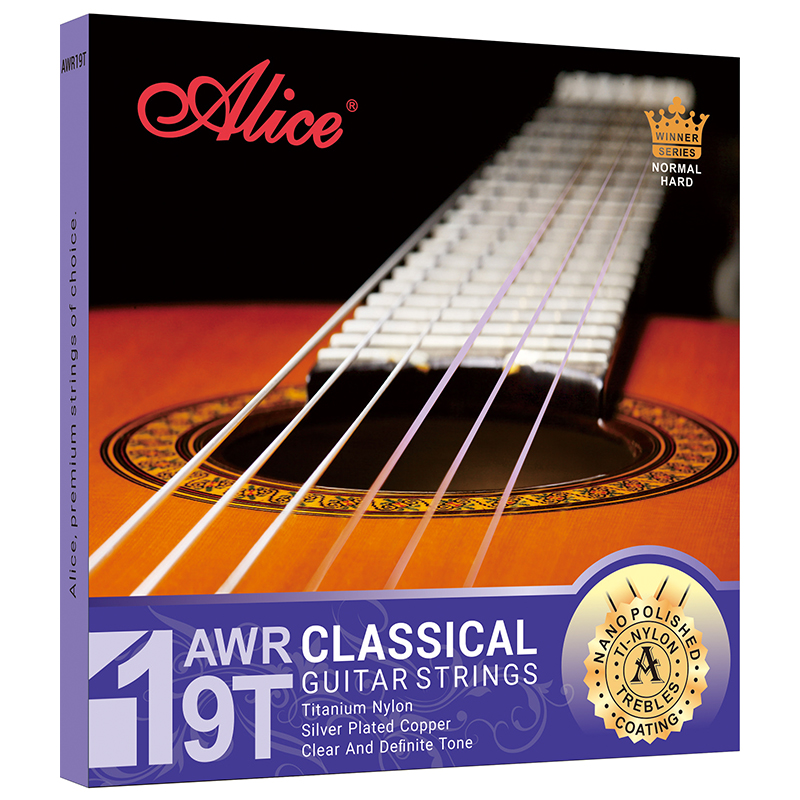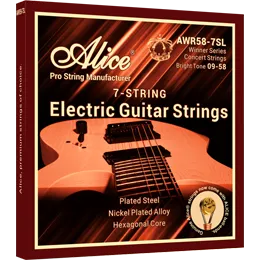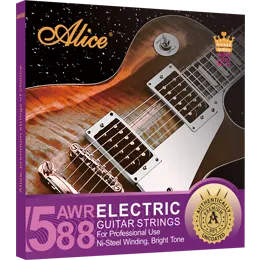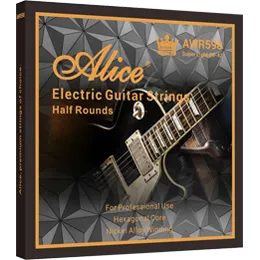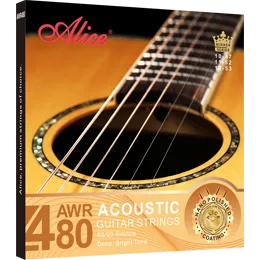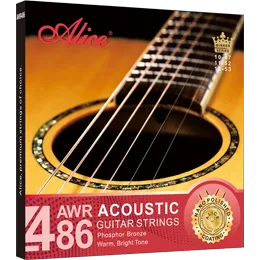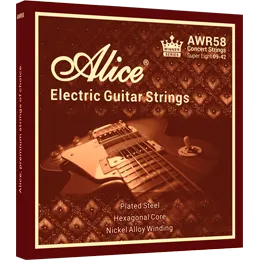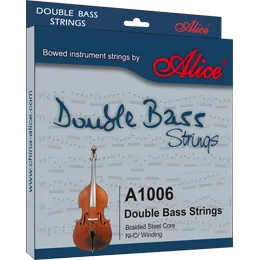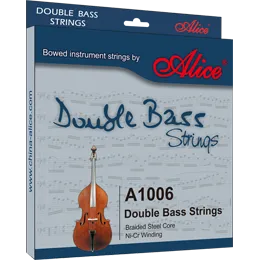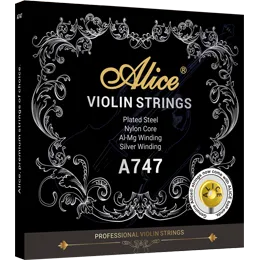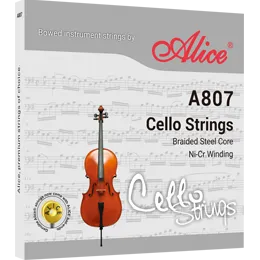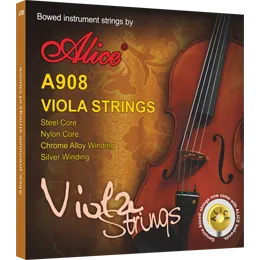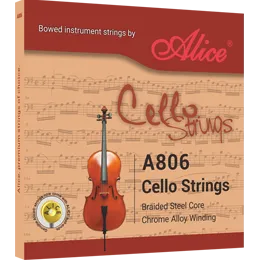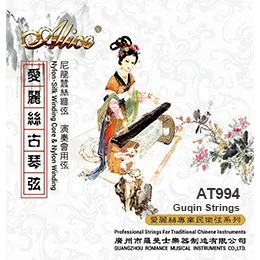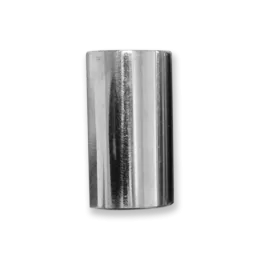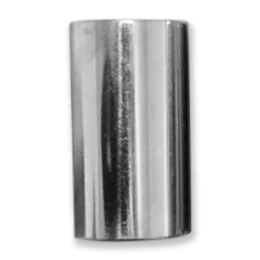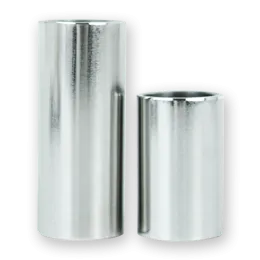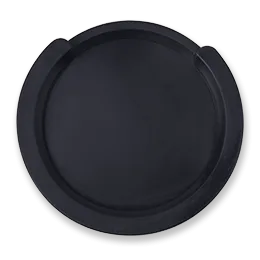The Ultimate Acoustic Guitar Strings Guide with ALICE
Guitar strings are more complex than people think. Though many people believe all guitar strings to be the same, the fact is that the strings are different and of various types. There are hundreds of strings in the market with unique sounds and textures. Strings are the connection between your fingers and the guitar. A different set of strings will completely change the sound of your playing. Choosing the right type of guitar string is the key to making the perfect performance. At ALICE, we understand the importance of guitar strings and aim to provide you with the ultimate acoustic guitar strings guide to help you make an informed decision.

Understanding the Components of Acoustic Guitar Strings
To understand the different types of acoustic guitar strings, we need to learn about their basic consisting parts.
String Core
The hexagonal core is a feature of modern acoustic guitar strings. The hexagonal shapes provide a solid base with cost-effectiveness. You can find the traditional round-core acoustic guitar strings in some rare cases. The cost of a round core acoustic guitar string is more expensive than a hexagonal core one. Some jazz guitarists prefer the traditional round core acoustic guitar strings.
String Winding
Winding is the thin wire wrapped around the string core and the main contact point from fingers to strings. Roundwounds are the most common and popular type of winding. The roundwounds are known for their clear tones, suitable for genres such as Pop, Rock, and Blues. The other type of winding is flatwounds adopted for traditional jazz tones. Flatwounds make a more mellow and softer sound.
Coatings
Coatings are the extra layer of protection to prolong the lifespan of an acoustic guitar string. The coating protects the strings from damage like finger oils, salty air, humidity, and various external agents.
Choosing the Right Acoustic Guitar Strings with ALICE
With the understanding of the basic components of acoustic guitar strings, let's dive into the different types of strings and how to choose the right ones for your playing style.
Gauge
The gauge, or thickness, of the acoustic guitar strings is an essential factor to consider. Lighter gauge strings (e.g., .010-.047) are easier to play, providing a softer feel and a brighter tone. Heavier gauge strings (e.g., .012-.053) offer a more powerful and deeper sound, but they require more hand strength to play.
Material
Acoustic guitar strings are commonly made from various materials, including phosphor bronze, 80/20 bronze, and nickel-plated steel. Each material has its unique tonal characteristics, so you can experiment to find the one that best suits your playing style and the genre you prefer.
ALICE Acoustic Guitar Strings
At ALICE, we pride ourselves on offering a wide range of high-quality acoustic guitar strings that cater to the diverse needs of musicians. Our ALICE acoustic guitar strings are designed to provide exceptional tone, durability, and playability, ensuring that you can focus on your craft without worrying about your strings.
Whether you're a beginner or a seasoned guitarist, ALICE has the perfect acoustic guitar strings for you. Explore our extensive collection and find the set that will take your performance to new heights.
Conclusion
In brief, the ALICE acoustic guitar strings guide has provided you with a comprehensive understanding of the different components and types of acoustic guitar strings. By considering factors like gauge, material, and the ALICE brand, you can make an informed decision and choose the best strings to elevate your musical experience. Remember, the right set of acoustic guitar strings can make all the difference in your performance. Invest in quality strings from ALICE and unlock the full potential of your acoustic guitar.
Relate News

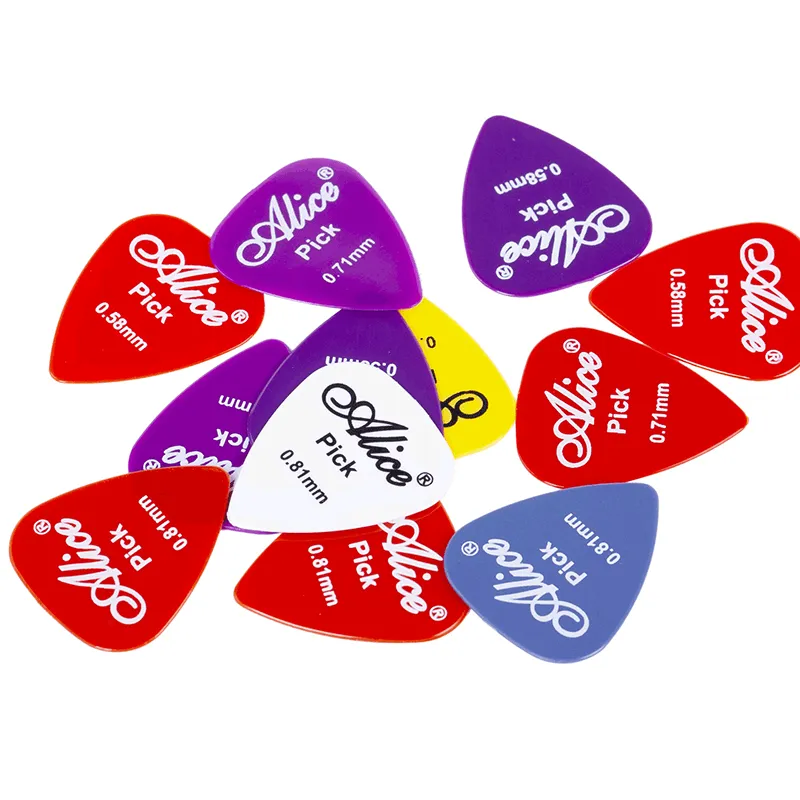
What Type of Guitar Pick Is Best?
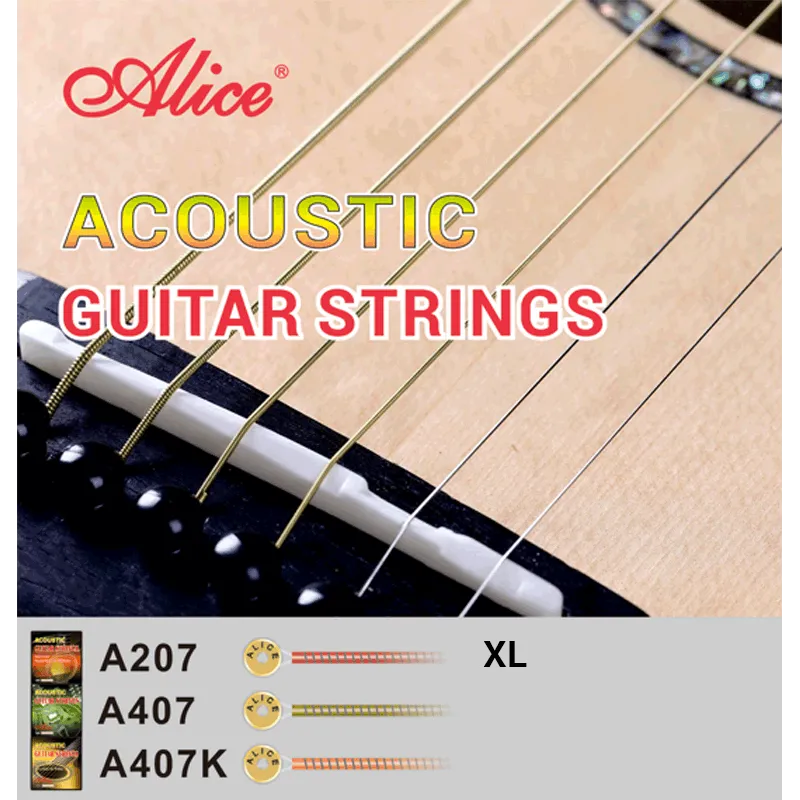
Are Acoustic and Classical Guitar Strings the Same?

Acoustic Guitar Strings Guide: Types and How to Choose the Right One

From Classic Rock to Modern Indie: The Evolution of Guitar String Trends
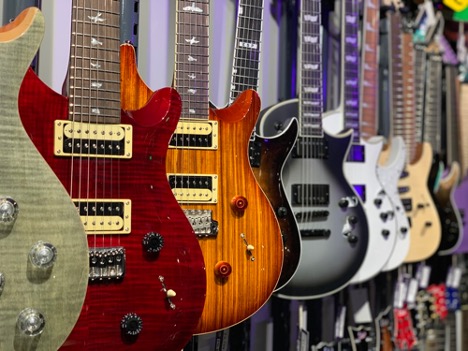
What Strings Fit Your Instrument? The Ultimate Guitar String Matching Guide
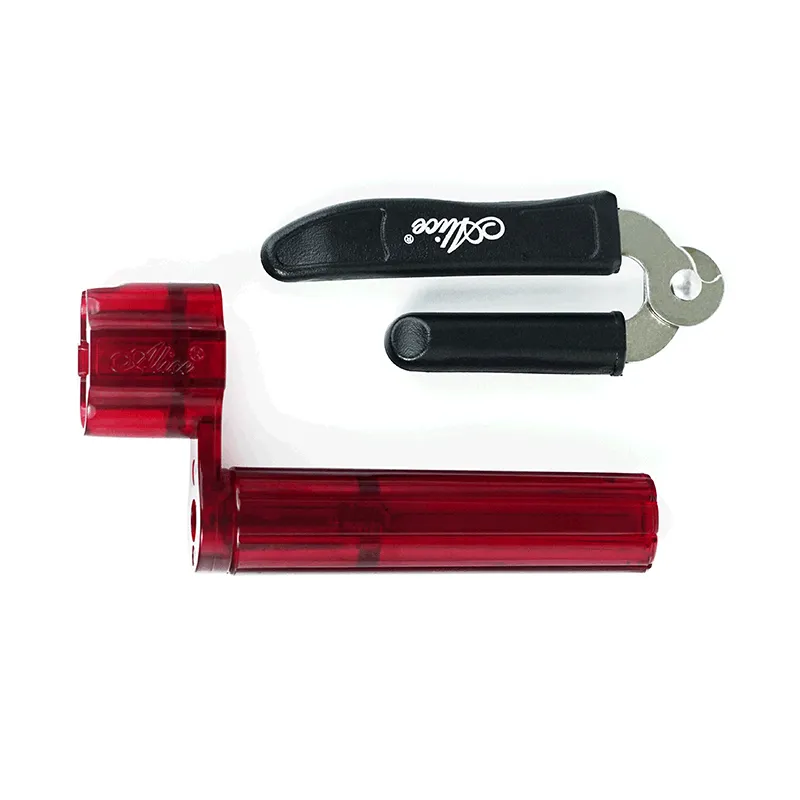
How to Change Acoustic Guitar Strings: A Step-by-Step Guide
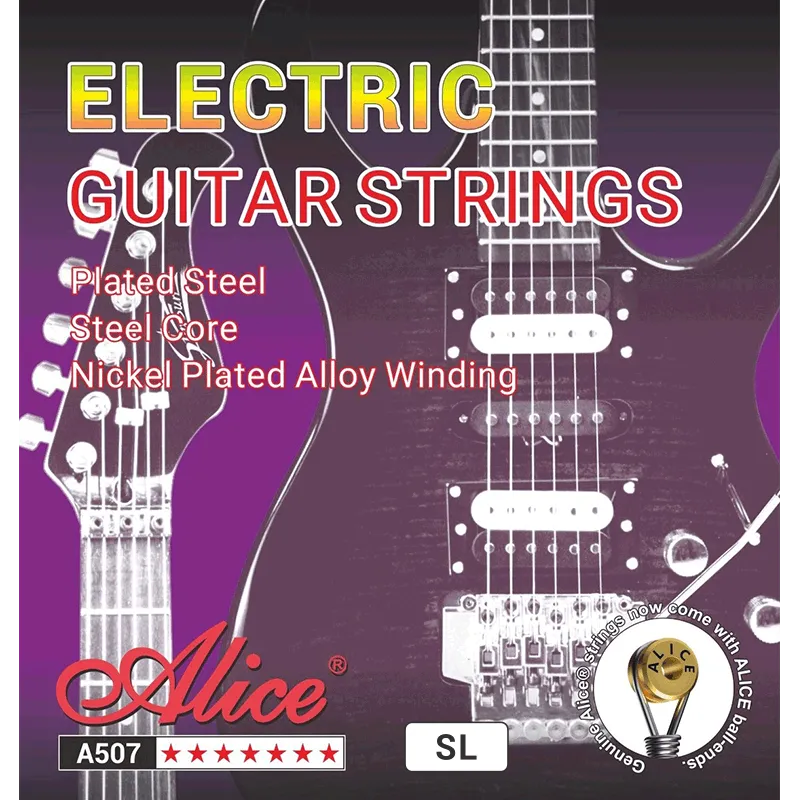
What Are the Different Types of Guitar Strings?

From Factory to Store: Guitar String Supply Chain Trends

Give Charm to Sound, Make Music Magic: Discover ALICE, the Exceptional Wholesale Guitar Strings
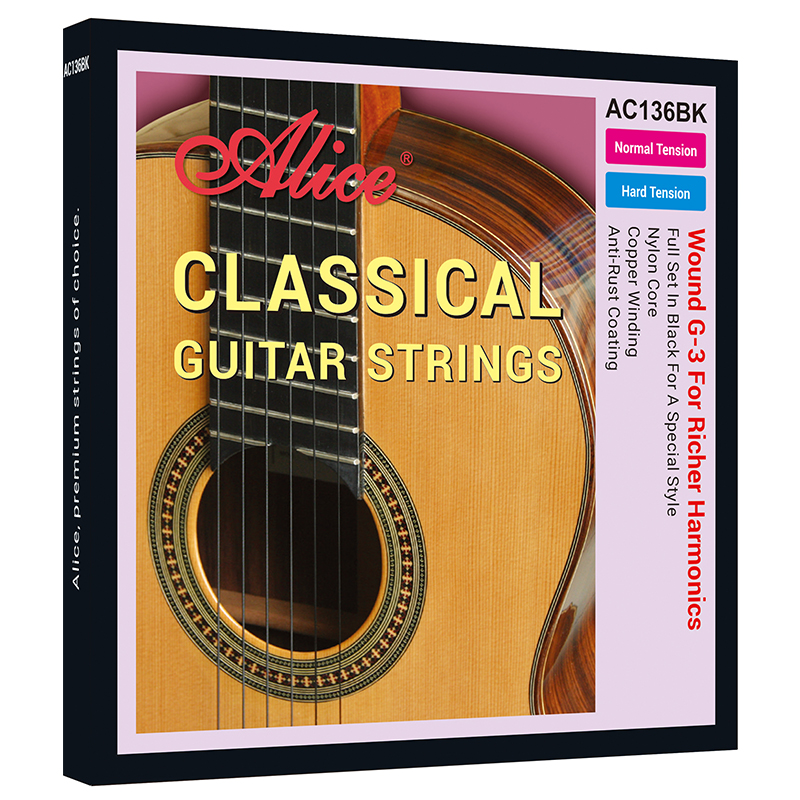
The Superior Choice: ALICE Coated Classical Guitar Strings
